Have you ever wondered how a dog could become a true life-saver? Imagine a loyal companion who can sense dangerous blood sugar changes before you even realize it’s happening. For people with diabetes, this isn’t just a fantasy—it’s a daily reality thanks to specially trained diabetic service dogs. Some breeds are especially gifted at this work, with their keen noses, loving personalities, and remarkable intuition. Let’s take a closer look at the ten dog breeds that stand out as extraordinary partners for those living with diabetes.
Labrador Retriever: The Gold Standard of Service
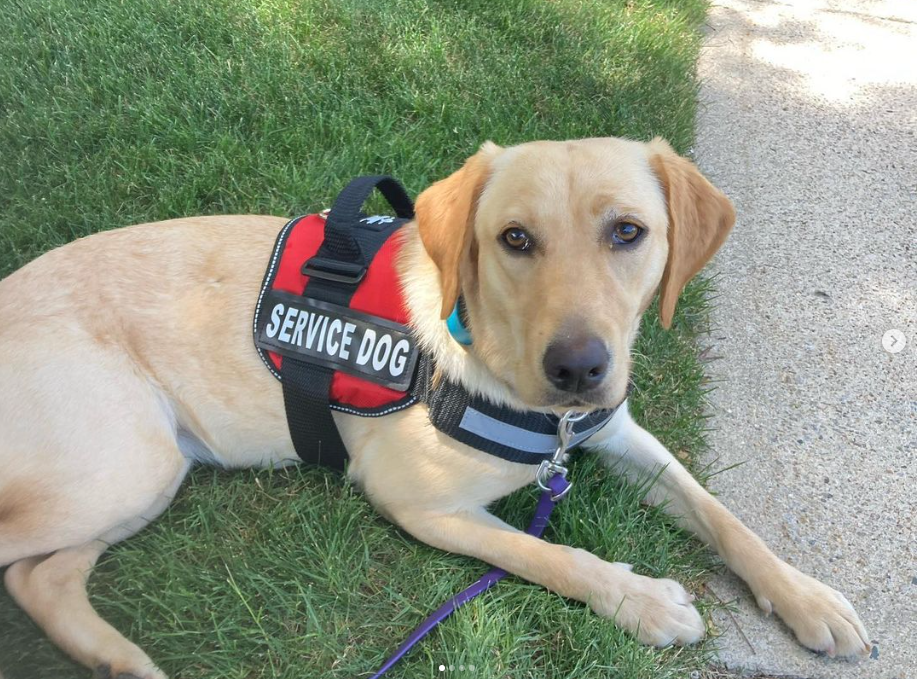
Labrador Retrievers are often the first breed that comes to mind when people think of service dogs, and for good reason. Their intelligence, friendly nature, and willingness to please make them superb at picking up the subtle scent changes that signal blood sugar fluctuations. Labradors are also strong enough to provide physical support if needed, and their gentle demeanor helps them fit into any family environment. Their loyalty is unmatched, and they have an incredible drive to help their humans. Many diabetic individuals credit their Labs with alerting them to dangerous lows or highs just in time. Labradors adapt well to structured training routines and thrive on having a purpose in life. Their calm presence can also offer emotional support during stressful moments, making them an all-around exceptional choice.
Golden Retriever: Gentle Hearts with Powerful Noses
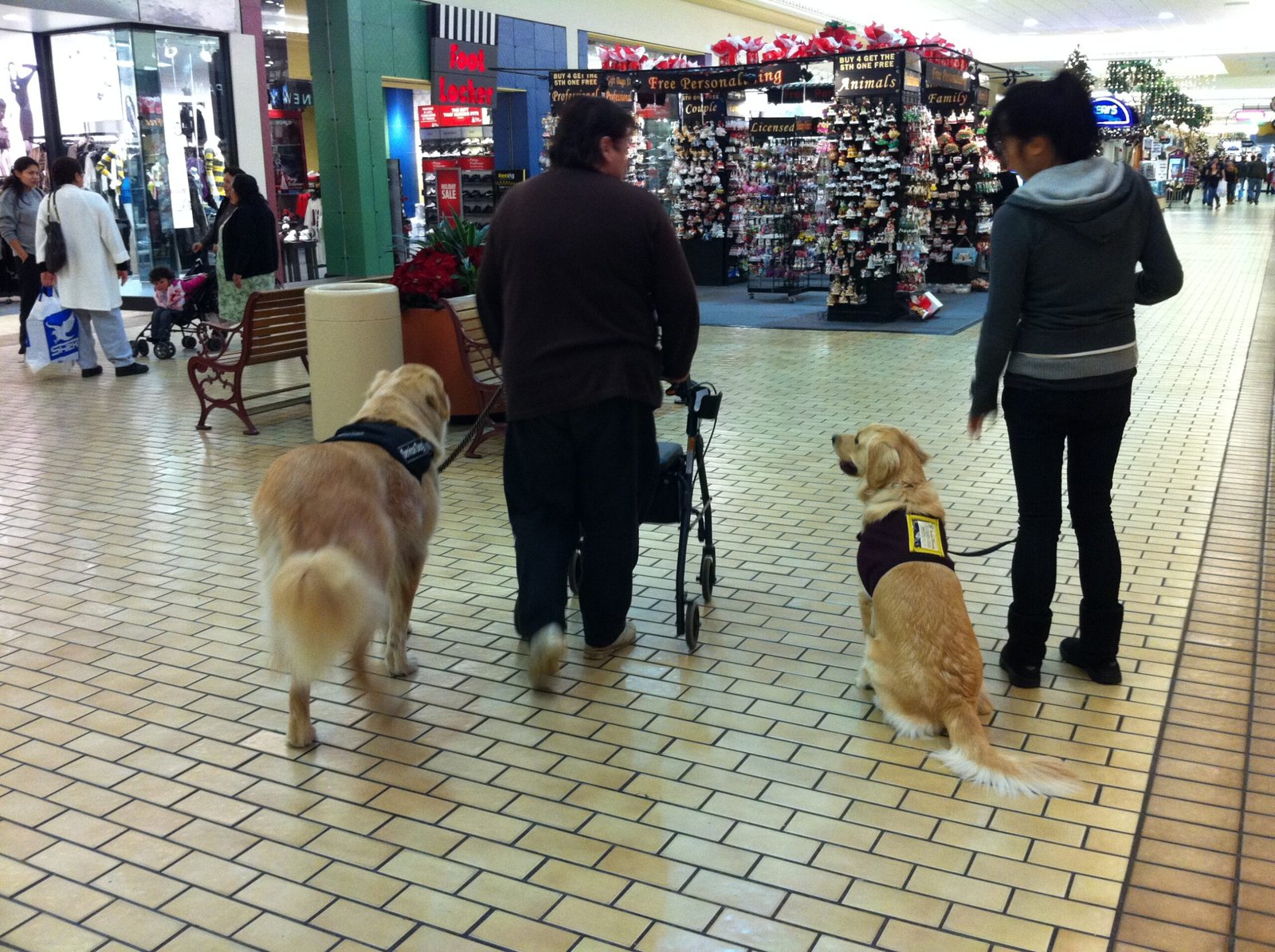
Golden Retrievers are known for their sweet, affectionate personalities and natural empathy, which makes them perfect for service work. These dogs are excellent at tuning in to their owner’s needs and are incredibly responsive to training. Goldens have a sharp sense of smell, enabling them to detect even minor chemical changes in the body related to diabetes. Their patient and even-tempered nature makes them easy to work with, especially for children or elderly people with diabetes. Golden Retrievers are also highly social, loving to be around people and providing comfort just by being near. Their long history as therapy and guide dogs speaks volumes about their suitability for diabetic service. For many, a Golden Retriever is not just a helper but a trusted friend who brings light and safety into daily life.
Poodle: Intelligence and Elegance Meet Service
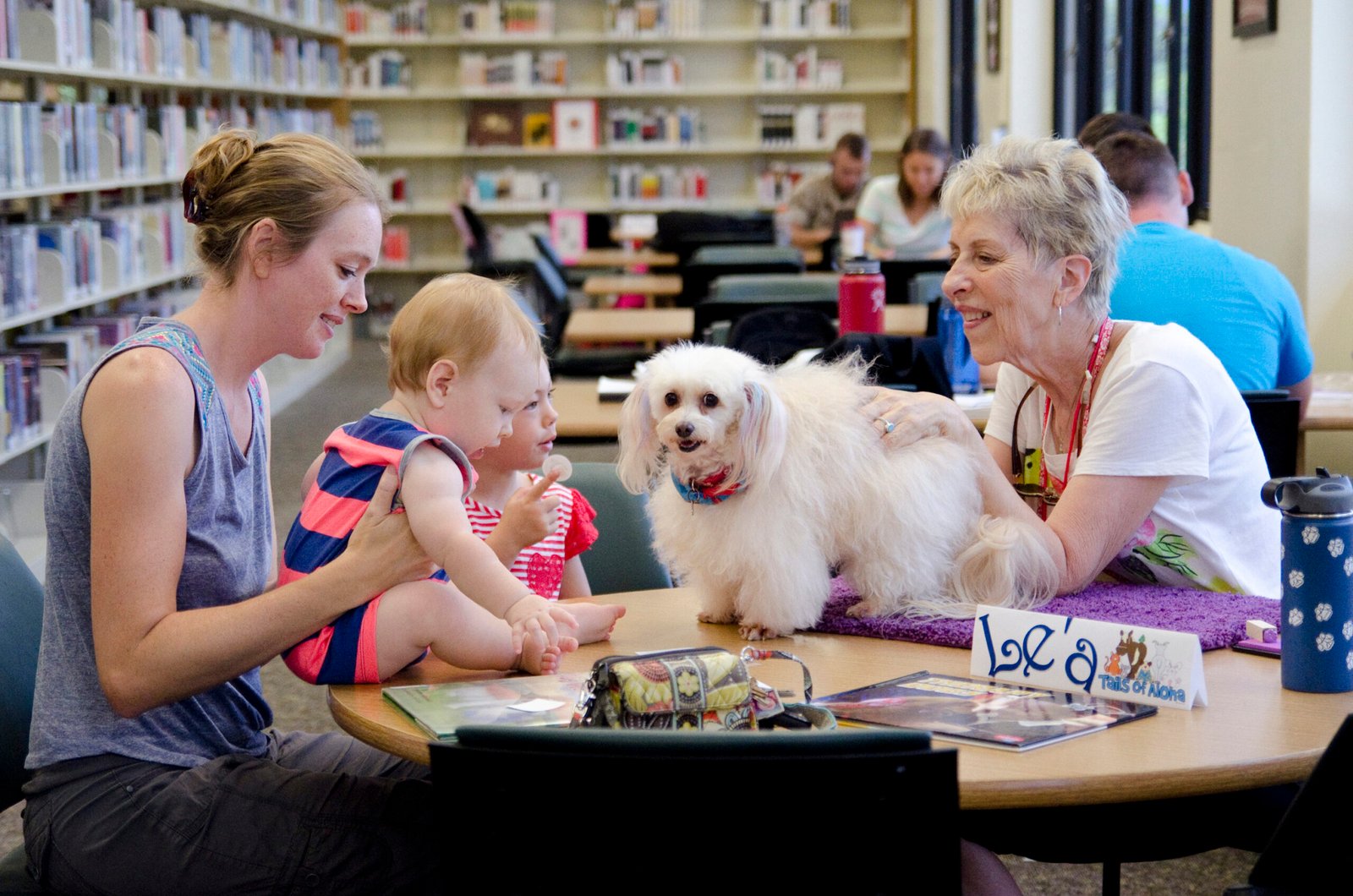
Poodles—whether standard, miniature, or toy—bring a unique combination of intelligence, alertness, and hypoallergenic coats to the world of diabetic service dogs. Their keen minds allow them to learn complex tasks quickly, including recognizing scent markers for high or low blood sugar. Poodles are also known for their strong bond with their owners, quickly forming deep attachments that are essential for successful service work. Their lower-shedding coats are a big plus for those with allergies or sensitivities. Poodles are also highly adaptable, equally comfortable in busy city apartments or quiet country homes. Their elegant appearance often belies just how hardworking and reliable they can be. Whether fetching emergency snacks or alerting loved ones, poodles excel at providing peace of mind.
German Shepherd: Loyal Protectors with Acute Senses
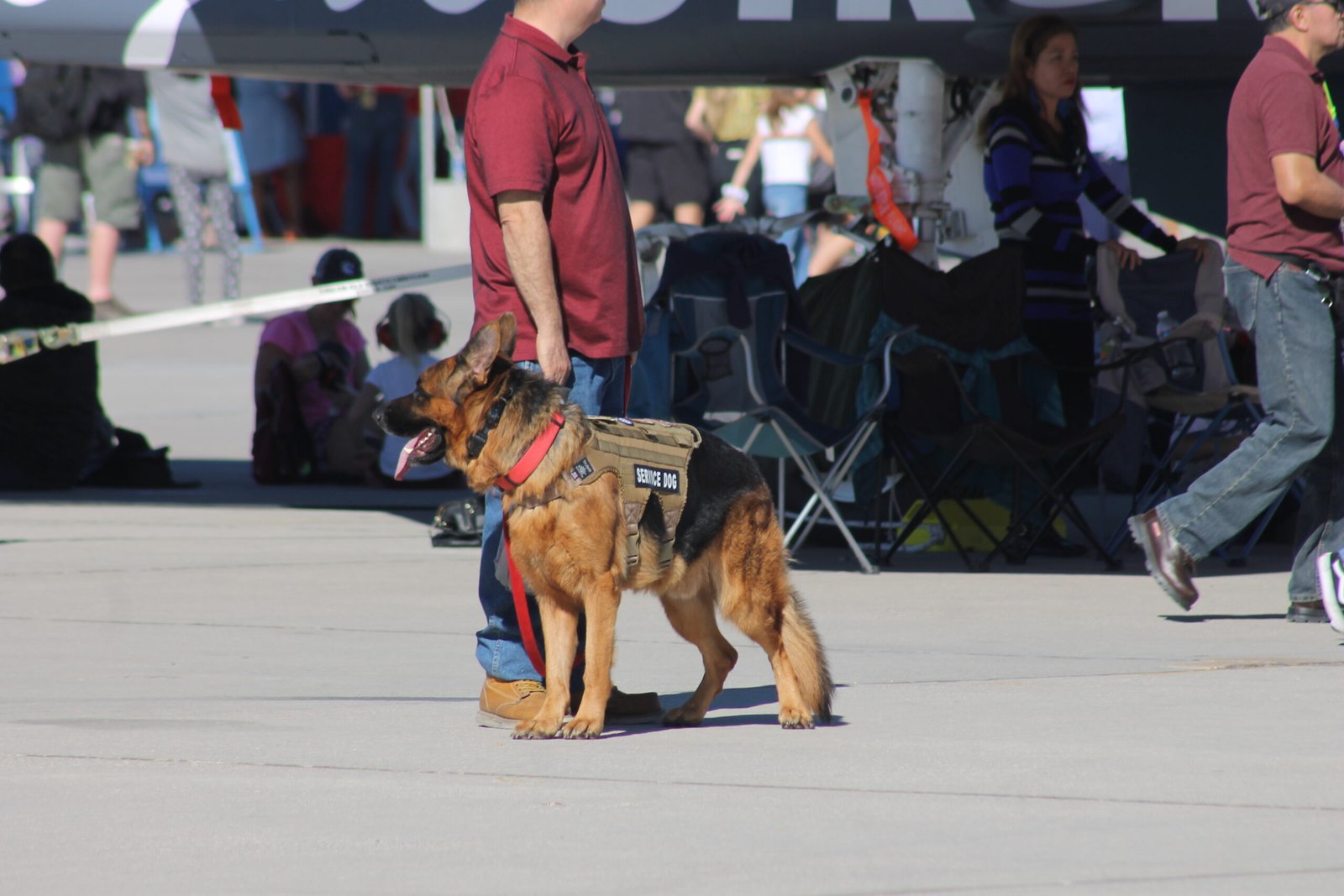
German Shepherds are famous for their protective instincts and intelligence, making them outstanding diabetic service dogs. Their sharp sense of smell allows them to pick up on the slightest changes in blood chemistry, while their alertness ensures they never miss a cue. German Shepherds are natural problem-solvers, often thinking one step ahead and acting quickly in emergencies. Their loyalty to their humans is legendary, and they take their responsibilities seriously. These dogs are also strong and athletic, able to provide physical support or help retrieve vital items. German Shepherds thrive when given a job to do and are happiest when working alongside their family. For people who value both companionship and a sense of security, this breed stands out as a steadfast partner.
Border Collie: The Energetic Genius
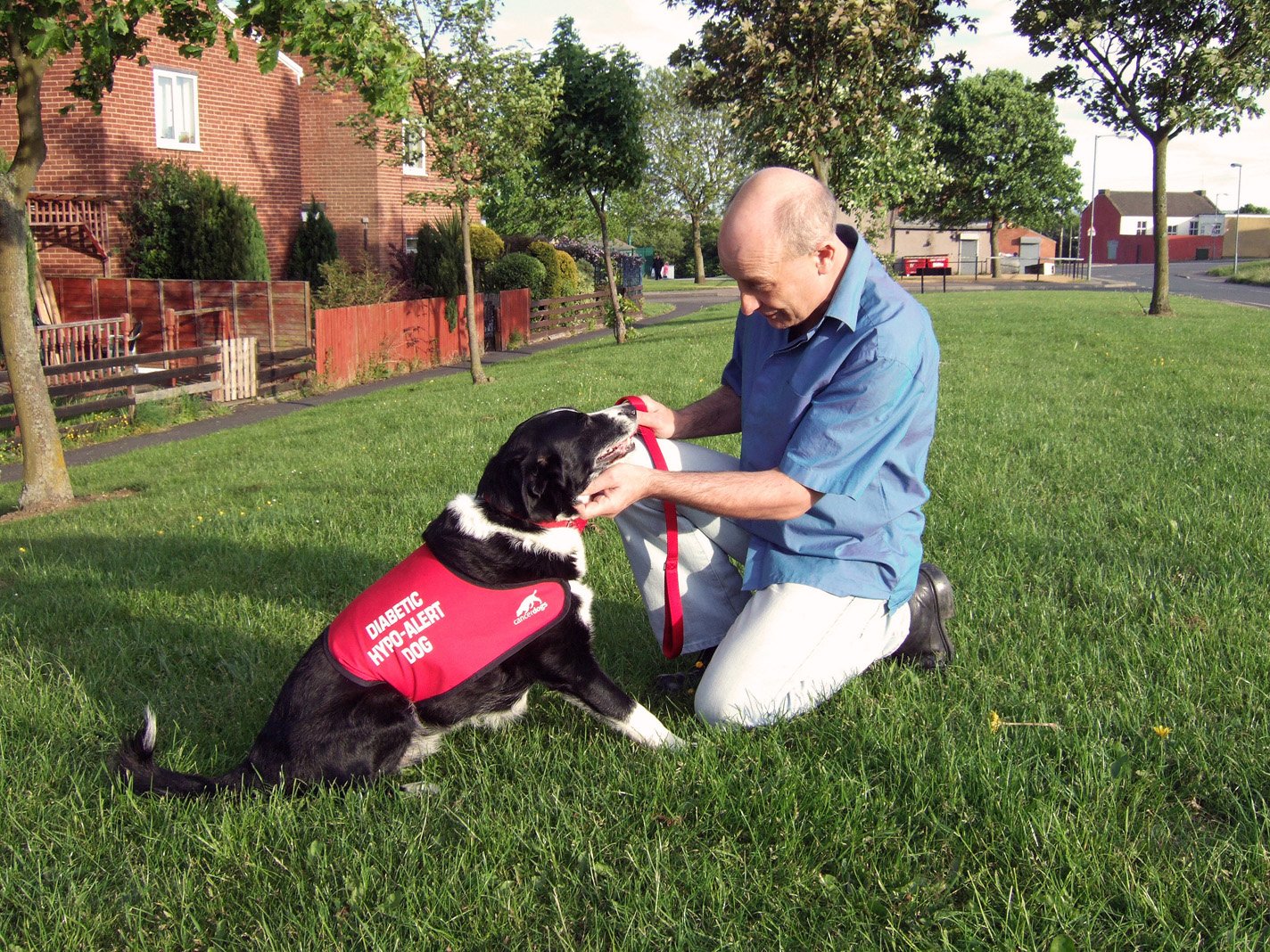
Border Collies are widely regarded as the most intelligent dog breed in the world, and that smarts makes them exceptional at diabetic alert work. These dogs are quick learners, eager to master new commands and tasks. Their high energy and focus mean they are always attentive to their environment, making them excellent at spotting subtle changes in their owner’s behavior or scent. Border Collies form close emotional bonds with their humans, which motivates them to keep a constant watch. Their agility and stamina are also benefits, as they can accompany their owners on walks, runs, or other activities without tiring. This breed loves having a purpose, and providing life-saving alerts is a job they approach with enthusiasm. For active individuals or families, a Border Collie offers both companionship and reliable support.
Boxer: Playful Spirits with Big Hearts
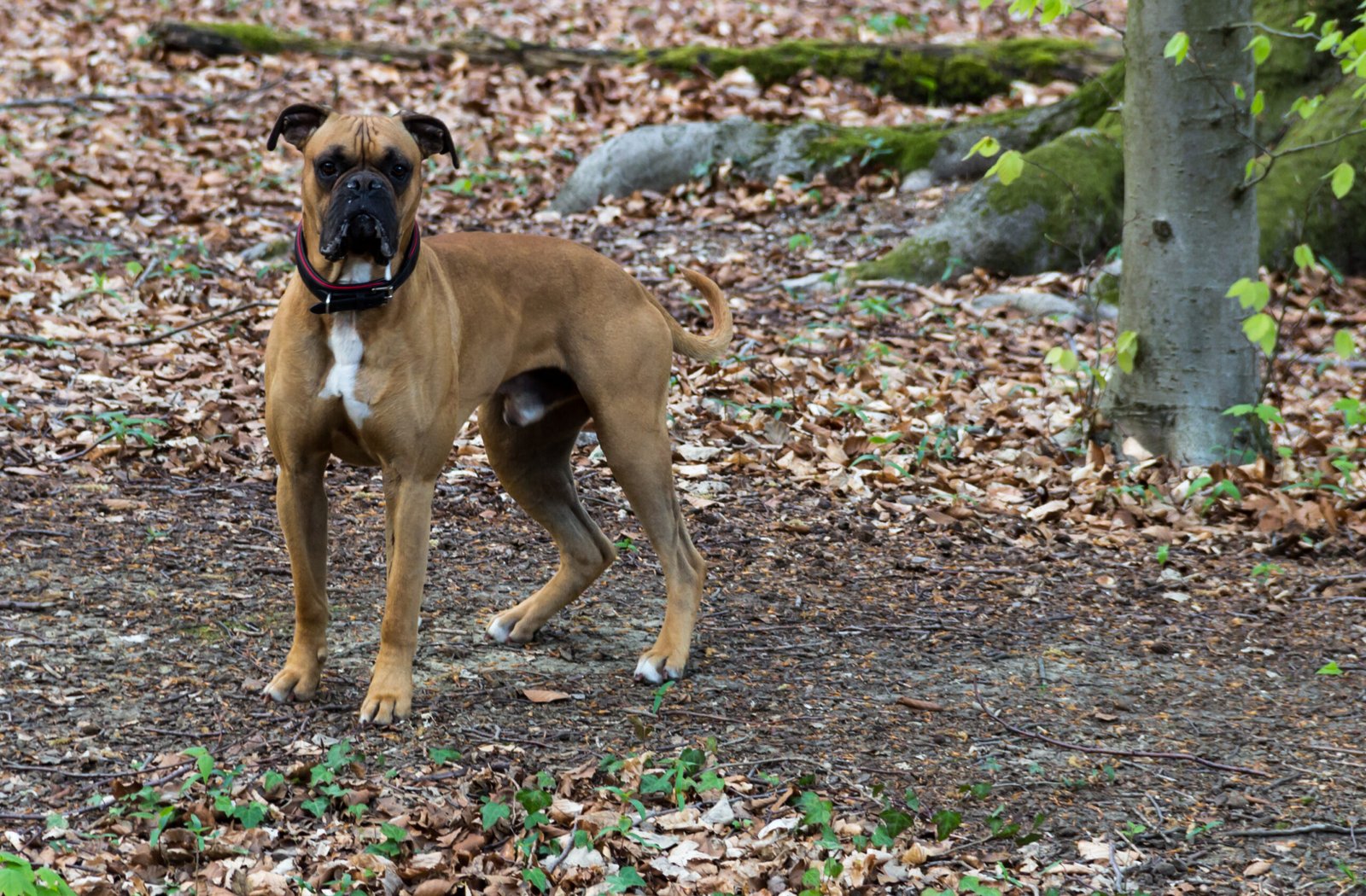
Boxers may surprise some as service dogs, but their playful personality is matched by remarkable sensitivity and awareness. Their alertness and eagerness to please make them quick learners when it comes to detecting blood sugar changes. Boxers are also known for their loving and protective nature, often forming strong bonds with children and adults alike. Their energetic temperament ensures they’re always on the lookout, ready to act if something seems wrong. Boxers are sturdy and resilient, able to handle the physical demands of service work while also providing warmth and comfort. Their expressive faces and joyful antics can lighten the mood during tough times. For those who want a dog that brings both fun and function, the Boxer is an excellent choice.
Australian Shepherd: The Attentive Companion

Australian Shepherds are highly attentive and naturally in tune with their owner’s moods and physical state. Their intelligence and energy make them quick to learn the unique scents associated with blood sugar changes. Aussies are renowned for their loyalty and desire to stay close, often following their humans from room to room. This breed’s herding instincts translate into a strong protective streak, ensuring they’re always vigilant. Australian Shepherds thrive on routine and structure, which aligns perfectly with the consistent training required for diabetic alert work. Their beautiful coats and bright eyes are just a bonus to their already impressive skill set. For those seeking a watchful, loving, and deeply devoted service dog, the Australian Shepherd is a standout.
Cocker Spaniel: Sensitive Souls with Sharp Noses

Cocker Spaniels may be smaller than some other service breeds, but their sensitivity and powerful sense of smell make them ideal diabetic alert dogs. These dogs are naturally attuned to their owner’s emotional and physical cues, often noticing changes before anyone else does. Cockers are affectionate and eager to please, making training both effective and enjoyable. Their compact size makes them a practical choice for people living in apartments or those who prefer a smaller companion. Cocker Spaniels are also gentle and patient, providing calm support during stressful situations. Their sweet disposition and expressive eyes make them beloved by families and children. For anyone seeking a smaller yet supremely capable service dog, the Cocker Spaniel is a wonderful option.
Doberman Pinscher: Alert and Devoted Guardians
Doberman Pinschers are known for their alertness, intelligence, and unwavering loyalty. These qualities make them impressive diabetic service dogs, especially for individuals who appreciate a strong, attentive presence. Dobermans are quick to detect changes in their owner’s scent or behavior, responding swiftly to potential emergencies. Their protective instincts mean they are always on guard, never letting their humans out of sight. Despite their imposing appearance, Dobermans are affectionate and form deep emotional bonds with their families. Their athleticism allows them to assist with a variety of daily tasks, from fetching supplies to providing physical support. For those who want both a guardian and a gentle friend, the Doberman is hard to beat.
Mixed Breeds: The Unsung Heroes
It’s easy to focus on purebred dogs, but mixed breeds—often found in shelters—can make outstanding diabetic service dogs too. Many mixed breeds inherit the best qualities of their parent breeds, such as keen noses, intelligence, and loyalty. With the right temperament and training, a mixed breed can develop all the skills needed to detect and alert to blood sugar changes. These dogs are often incredibly grateful for the second chance they receive and form unbreakable bonds with their people. Mixed breeds come in all sizes, personalities, and energy levels, offering something for everyone. Choosing a mixed breed also gives a loving home to a dog in need, adding another layer of meaning to the service partnership. For those open to a little surprise and a lot of heart, a mixed breed might just be the perfect fit.
seo backlink tools review
Wednesday 29th of October 2025
Hello There. I discovered your blog the use of msn. That is a really smartly written article. I will make sure to bookmark it and return to learn more of your useful info. Thanks for the post. I will definitely return.
Greg Fortney
Sunday 27th of April 2025
Wow, What a fabulous article! Thank you.